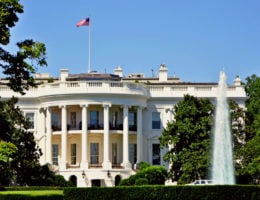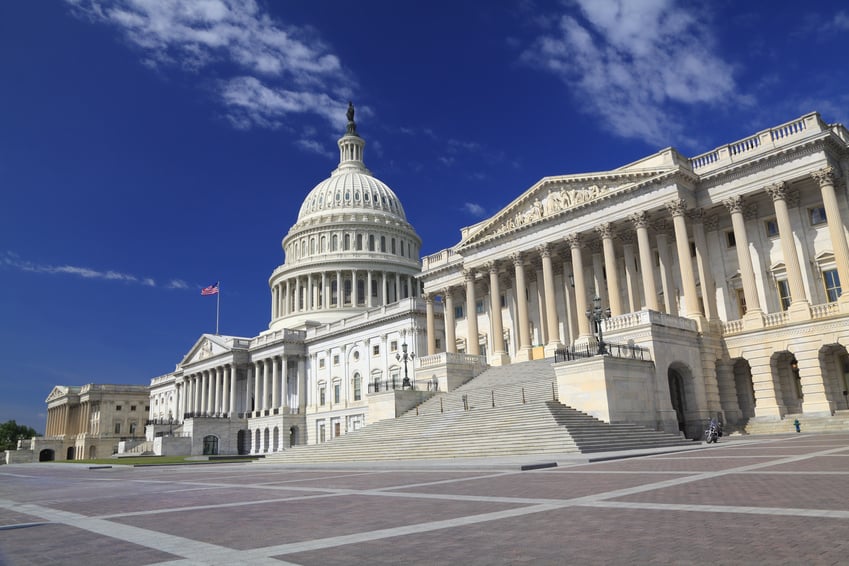US Senate Democrats, with support from the White House, have introduced the Defending Ukraine Sovereignty Act of 2022. This bill seeks to deter a Russian “escalation” of hostilities in or against Ukraine through the threat of imposing sanctions against Russian officials and companies, as well as individuals and entities involved in the Nord Stream 2 pipeline.
On January 25, 2022, two senior Biden Administration officials held a background press call on potential economic deterrence measures to be imposed in the event of a Russian invasion of Ukraine. The senior officials stated that, if that happens, the US Government is prepared to impose sanctions with “massive consequences” for Russia that were not previously considered following the 2014 annexation of Crimea.
On December 16, 2021, the US Treasury Department’s Office of Foreign Assets Control (“OFAC”) designated eight Chinese tech companies to the Non-SDN Chinese Military-Industrial Complex Companies (“NS-CMIC”) list pursuant to Executive Order 13959, as amended by Executive Order 14032, for their alleged involvement in supporting surveillance of ethnic and religious minorities in Xinjiang, China. On the next day, the US Commerce Department’s Bureau of Industry and Security (“BIS”) also added 37 new parties to the BIS Entity List, including 25 Chinese companies for their alleged involvement in efforts to develop and use biotechnology and other technologies for military application and human rights abuses. These sanctions are part of an increase in US Government efforts to prevent alleged human rights abuses.
On December 9, 2021, the US Departments of State and Commerce amended their regulations to strengthen US export controls targeting Cambodia. According to the Federal Register notices announcing these final rules, these enhanced export control measures were adopted in response to the expanded Chinese military presence in Cambodia, as well as the corruption and human rights abuses allegedly committed by the Cambodian Government. This action builds on various public statements from the US Government this year expressing concerns about Cambodia and warning US business about conducting business in or with that country, as described in more detail below.
On November 26, 2021, the Commerce Department of Commerce published a Proposed Rule that would amend its Interim Final Rule on Securing the Information and Communications Technology and Services Supply Chain (“ICTS Regulations”) to specifically address connected software applications. The Proposed Rule would make changes prompted by Executive Order 14034 to the ICTS Regulations.
On November 12, 2021, the US Department of the Treasury’s Office of Foreign Assets Control sanctioned four entities and two individuals pursuant to Executive Order 14046, “Imposing Sanctions on Certain Persons With Respect to the Humanitarian and Human Rights Crisis in Ethiopia”. These designations are in response to the growing humanitarian and human rights crisis and expanding military conflict in Ethiopia.
Join us for an international conference at which Baker McKenzie experts will share the most recent developments in the areas of sanctions, export controls, anti-corruption legislation, customs and Russian trade protectionism. The Russia Trade Days event will take place from 7 – 10 December 2021.
On October 15, 2021, the US Treasury Department’s Office of Foreign Assets Control published sanctions compliance guidance for the virtual currency industry (the “Guidance”), given that “the growing prevalence of virtual currency … brings greater exposure to sanctions risk.” This Guidance follows (1) the recent and first-ever designation of a virtual currency exchange by the OFAC (see our recent post on this here), and (2) the launch of the National Cryptocurrency Enforcement Team to tackle criminal misuses of cryptocurrency (see a description of this new team on our Blockchain blog, available here).
On October 22, 2021, the Commerce Department’s Bureau of Industry and Security (“BIS”) published a Proposed Rule to outline potential changes it is considering making to the Export Administration Regulations in an effort to clarify and expand the restrictions on the availability of License Exception Strategic Trade Authorization for the export, reexport, and in-country transfer of certain items. BIS is seeking public comments on these proposed changes by December 6, 2021.
On November 1, 2021, the US Department of State’s Directorate of Defense Trade Controls issued a final rule amending entries for Ethiopia and Eritrea in the International Traffic in Arms Regulations. These changes supplement the sanctions imposed on both countries under Executive Order 14046, “Imposing Sanctions on Certain Persons With Respect to the Humanitarian and Human Rights Crisis in Ethiopia,” which was signed by President Biden in September 2021.








